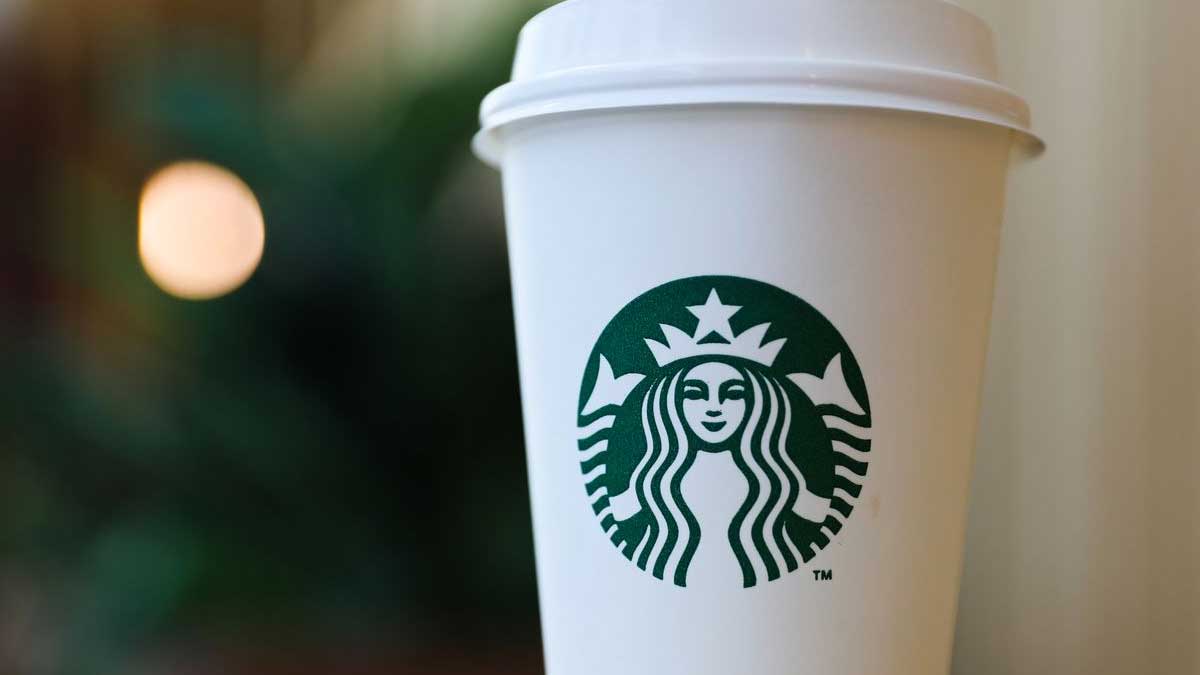- Home
- Billionaires
- Investing Newsletters
- 193CC 1000
- Article Layout 2
- Article Layout 3
- Article Layout 4
- Article Layout 5
- Article Layout 6
- Article Layout 7
- Article Layout 8
- Article Layout 9
- Article Layout 10
- Article Layout 11
- Article Layout 12
- Article Layout 13
- Article Layout 14
- Article Sidebar
- Post Format
- pages
- Archive Layouts
- Post Gallery
- Post Video Background
- Post Review
- Sponsored Post
- Leadership
- Business
- Money
- Small Business
- Innovation
- Shop
Recent Posts
Starbucks Removes Non-Dairy Milk Charges November 7

Starbucks, a coffeehouse giant known worldwide, has announced that starting November 7, it will eliminate the extra fee for non-dairy milk alternatives. This change comes just in time for the company’s highly anticipated holiday drink launch and will apply across its U.S. stores. For customers who customize their drinks with non-dairy options like soy, oat, almond, and coconut milk, the removal of the surcharge means substantial savings. Starbucks reports that this adjustment could reduce the cost of some orders by more than 10%, reflecting the popularity of dairy-free customizations among its patrons. In fact, non-dairy substitutions rank as the second-most frequent customization request in Starbucks stores, highlighting an ongoing shift in consumer preferences toward plant-based options.
The move represents Starbucks’ response to rising demands for non-dairy choices in its menu, as many customers have embraced plant-based diets for health, environmental, or ethical reasons. Until now, the added cost for non-dairy milk could reach up to 80 cents per drink in some markets, a price that has deterred some customers from choosing these alternatives regularly. CNBC noted that the company’s pricing strategy had created a barrier for some, dissuading them from making the trip to Starbucks for a morning or afternoon beverage. By eliminating the surcharge, Starbucks hopes to reconnect with these customers and create a more inclusive pricing model for all preferences.
Notably, the extra fee for non-dairy milk had stirred some controversy over the years, leading some to question Starbucks’ commitment to sustainability and consumer inclusivity. Among those who publicly objected was actor and activist James Cromwell, famous for his roles in “Succession” and “Babe.” Cromwell protested Starbucks’ non-dairy surcharge in a memorable demonstration, where he glued his hand to a Starbucks counter while wearing a “Free the Animals” T-shirt and voiced his discontent over the pricing model. This act of protest drew attention to the issue and highlighted the strong emotions some consumers feel about corporate practices they perceive as unfair.
Beyond the changes to its milk options, Starbucks has been dealing with fluctuating market conditions, including a decline in customer visits and sales. On Wednesday, the company reported that same-store sales in North America dropped by 6% in the last quarter, while global same-store sales fell by 7%. This decline underscores the company’s broader challenges, as it seeks to maintain its competitive edge in a crowded coffee market. Starbucks CEO Brian Niccol, who recently assumed the position, has been tasked with rejuvenating the brand, which has long dominated the coffee industry but is now facing new competitors and shifts in consumer behavior.
To enhance the customer experience and improve service efficiency, Niccol announced that Starbucks is setting a new target: to ensure customers receive their orders within four minutes. By focusing on faster service, Starbucks aims to attract more people looking for convenience and promptness, especially during busy hours. Additionally, the company plans to reintroduce condiment stations in its stores, allowing customers to customize their brewed coffee right at the register. This approach recalls Starbucks’ earlier store model, where customers had more freedom to adjust their drinks to their preferences without waiting in line.
Interestingly, this shift to quicker service and self-service customization coincides with Starbucks’ recent decision not to increase prices in the 2025 fiscal year, a move aimed at appealing to budget-conscious consumers amid inflationary pressures. The company’s commitment to holding prices steady, along with the elimination of the non-dairy surcharge, demonstrates a broader strategy to retain customer loyalty by making Starbucks products more accessible and affordable for all.
The financial performance of Starbucks has been a point of interest for investors as well. Despite experiencing a summer dip, with shares dropping as low as $72.50, Starbucks’ stock has recovered and closed at $97.32 on Wednesday. The stock’s nearly 4% gain since the start of the year suggests that investors are optimistic about the changes the company is implementing. As Starbucks prepares for its busy holiday season, it hopes that these adjustments will draw customers back, potentially reversing recent declines in traffic and sales.
The decision to remove the surcharge for non-dairy milk comes as consumer demand for plant-based foods continues to grow. In recent years, more people have adopted plant-based diets for various reasons, including health benefits and environmental concerns. The dairy industry, in particular, has come under scrutiny for its environmental impact, which includes significant greenhouse gas emissions and high water usage. By making non-dairy milk more accessible, Starbucks is not only catering to customer preferences but also aligning itself with sustainability trends that resonate with an increasing portion of its consumer base.
Starbucks has also been evolving its menu to include a wider range of plant-based options, including snacks and meals. This change reflects a larger shift within the food industry, where more brands are introducing plant-based alternatives to meet the growing demand. While Starbucks previously faced criticism for charging extra for non-dairy milk, the company’s latest move suggests a willingness to adapt and respond to consumer feedback, an approach that could strengthen its brand image among environmentally conscious customers.
These efforts to innovate and make its offerings more inclusive are vital for Starbucks as it seeks to remain relevant in an increasingly competitive market. The coffee giant faces competition from smaller, more specialized coffee shops that prioritize sustainability and customization, as well as from large chains that are expanding their coffee and beverage selections. In this landscape, Starbucks must balance maintaining its classic image with adapting to modern preferences and expectations.
The removal of the non-dairy milk surcharge is a significant milestone in Starbucks’ ongoing journey to remain a preferred coffee destination for a diverse customer base. As Starbucks heads into its holiday season with new pricing policies and operational changes, it hopes to rekindle customer enthusiasm and loyalty. For customers who have long preferred non-dairy milk but were deterred by the extra charge, this new policy change is a welcome update that makes Starbucks a more attractive choice in the coffee industry.
With continued focus on consumer satisfaction, customization, and convenience, Starbucks appears committed to staying at the forefront of the coffeehouse experience. The company’s recent efforts indicate that it is listening to its customers and making adjustments to create a more inclusive and sustainable future. As Starbucks eliminates the non-dairy surcharge, it sets a new standard in customer service and affordability, aiming to strengthen its foothold in the global coffee market and reconnect with the millions of loyal patrons who make Starbucks a part of their daily routine.
Recent Posts
Categories
- 193cc Digital Assets2
- 5G1
- Aerospace & Defense46
- AI37
- Arts3
- Banking & Insurance11
- Big Data3
- Billionaires462
- Boats & Planes1
- Business328
- Careers13
- Cars & Bikes76
- CEO Network1
- CFO Network17
- CHRO Network1
- CIO Network1
- Cloud10
- CMO Network18
- Commercial Real Estate7
- Consultant1
- Consumer Tech180
- CxO1
- Cybersecurity68
- Dining1
- Diversity, Equity & Inclusion4
- Education7
- Energy8
- Enterprise Tech29
- Events11
- Fintech1
- Food & Drink2
- Franchises1
- Freelance1
- Future Of Work2
- Games141
- GIG1
- Healthcare78
- Hollywood & Entertainment186
- Houses1
- Innovation42
- Investing2
- Investing Newsletters4
- Leadership65
- Lifestyle11
- Manufacturing1
- Markets20
- Media193
- Mobile phone1
- Money13
- Personal Finance2
- Policy567
- Real Estate1
- Research6
- Retail1
- Retirement1
- Small Business1
- SportsMoney33
- Style & Beauty1
- Success Income1
- Taxes2
- Travel10
- Uncategorized8
- Vices1
- Watches & Jewelry2
- world's billionaires431
Related Articles
Tesla Recalls 700,000 Vehicles Over Tire Pressure Issue
Tesla has announced its latest recall of nearly 700,000 vehicles in the...
By 193cc Agency CouncilDecember 20, 2024MicroStrategy Stock Rallies on Nasdaq 100 News
Shares of MicroStrategy surged on Monday following the announcement that the company...
By 193cc Agency CouncilDecember 16, 2024Stanley Recalls Millions of Mugs After Burn Injuries
In a significant recall, Stanley, the well-known brand behind popular stainless steel...
By 193cc Agency CouncilDecember 12, 2024Adobe Shares Drop 12% After Lowering Revenue Outlook
Shares of Adobe experienced a significant drop of over 12% on Thursday,...
By 193cc Agency CouncilDecember 12, 2024















Leave a comment